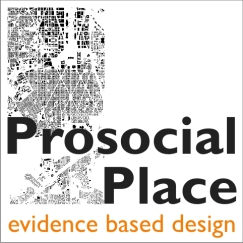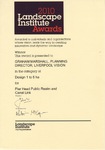Prosocial Place: Urban Design for Mental Health & Wellbeing
We Are
Prosocial Place is led by Graham Marshall and Rhiannon Corcoran.
Graham is a landscape architect and urban designer.
Rhiannon is a part time academic at the University of Liverpool where she is a Chair of Psychology and Public Mental Health.
We are social regenerators, researchers, mentors and activators, bringing an experienced cross-disciplinary skill set to bear on complex urban challenges.
We Deliver
- Community-Led Place Change - Supporting communities to lead meaningful, lasting change
- Design, Quality & the Built Environment - Creating high-quality, people-centred places
- Town Centres, Heritage & Culture - Strengthening identity, vitality, and local distinctiveness
- Learning, Leadership & Impact - Shaping practice through knowledge, insight, and influence
We Value
-
People first: ensuring that people and community needs inform projects.
-
Community at the centre: strengthening community as the foundation of meaningful place change.
-
Equity and justice: addressing inequality, disadvantage, disempowerment, and the impacts of poverty.
-
Care and safety: delivering friendly, inclusive, and trauma-informed ways of working.
-
Stewardship & capability: building the skills and confidence of communities to care for and shape their own places.
-
Partnership: connecting communities, public services, and the private sector.
-
Respect for place: respecting every place as unique and understanding it in context.
-
Integrated sustainability: seeing social, economic, and environmental wellbeing as connected and inseparable.
-
Learning in action: bringing research and practice together to deliver lasting benefits.
-
Wellbeing-led thinking: understanding how community wellbeing and social determinants shape responses to and outcomes in places.







